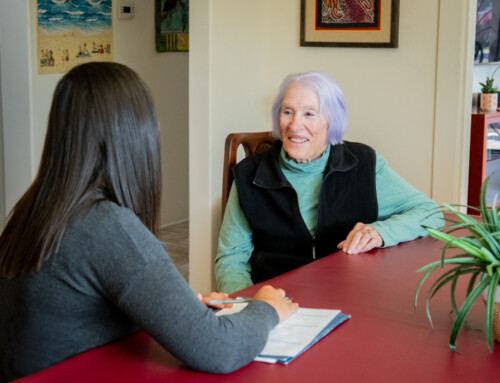
People with Alzheimer’s or a related dementia may become more confused or nervous later in the day, often as the sun sets. This is called sundowning. They may see or hear things that are not there and can become paranoid. They might accuse people of things that are not true, like stealing or lying, or may become more restless moving or pacing back and forth. These behaviors are not done on purpose, and people with dementia cannot control them.
Why does this happen? People with dementia might be more tired in the late afternoon, or even react to their care partner’s feelings of being tired. The changing amounts of light and shadows can also be confusing or scary to them, especially when there is a change in sunrise/sunset time, like when Daylight Saving begins or ends. However, there are a few simple ways you can help prevent sundowning from occurring.
Make changes at home:
- Turn lights on early in the afternoon to make the environment brighter.
- Turn down (or turn off) the television or radio.
- Turn on soothing music and avoid loud or confusing noises.
- Clear a path for the person with dementia to move or walk back and forth.
Pay attention to meals and snacks:
- Provide a large meal at lunch and a light meal at dinner.
- Cut down on caffeine and sugar after 3 PM.
- Keep away from alcohol and cigarettes.
Create a schedule:
- Try to ensure the person with dementia goes to bed and wakes up at the same time every day.
- Take walks, dance, or perform other movements/exercises to use up extra energy
- Plan any appointments or activities during the morning when your person is more alert.
Other ideas:
- Be calm, reassuring and flexible as a care partner.
- Try a new activity to distract from the anxiety, like sorting coins or drawing.
For personalized dementia support, call us at 858.492.4400 to speak with one of our dementia experts who are here to help San Diego County residents and/or those caring for someone living in San Diego County (Spanish speakers available). Also check out our free education classes, social activities, caregiver support groups, & more.
RECOMMENDED: 5 Activities for People with Alzheimer’s in San Diego
Updated on March 6th, 2025




